Assault on federal chains: how local food producers can get on supermarket shelves
What sales channels Tatarstan food producers use and how to break into federal chains
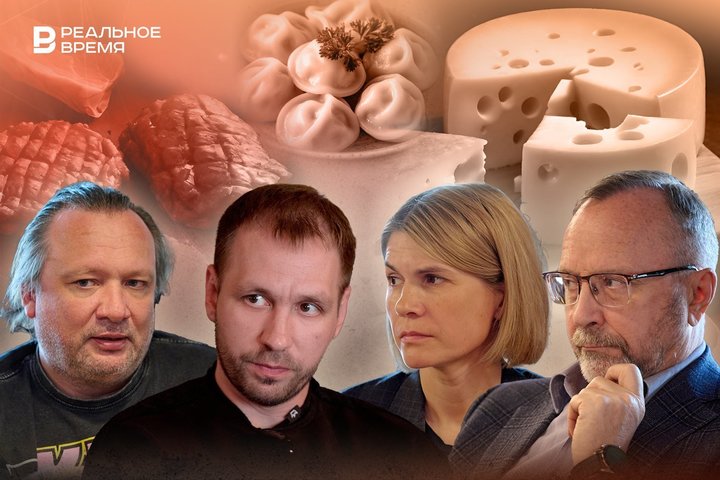
The main thing is to get through: “We wrote requests 40 times and went to negotiations 10 times”
Local food producers who want to get their goods on the shelves of federal supermarket chains say that the main problem here is not quality control or the organization of deliveries. The main task is the first contact, which can be enormously difficult to achieve. Especially if we are not talking about mass products like potatoes and carrots, but about something niche, so to speak.
For example, the Tatarstan company Helix Group grows snails in Laishevo District of Tatarstan, produces frozen semi-finished products and chilled products from them. The company's CEO Ramil Galimzyanov says that about 70% of the products go to retail (restaurants take the rest). Not every chain is suitable: for example, the product will not be in demand in the two main Russian chains of convenience stores due to the high price. But the premium Azbuka Vkusa has put Tatarstan snails on its shelf. This product is also available in Yandex Lavka, in the Lavka 100 section, and in several offline store chains.
“The main thing is not to meet their requirements, but to reach out to them. They all start by saying: “Write an application by email, fill out a questionnaire.” For example, we wrote requests to Lavka 100 about 40 times and went to negotiations 10 times. At least a year passed from the start of work to signing the contract. How we get out of this situation: we look for acquaintances through the Michelin-starred restaurants in Moscow with whom we work. Through them, you get in touch with some distant manager of the chain you need, through whom you try to get through to the category manager,” says Ramil Galimzyanov.
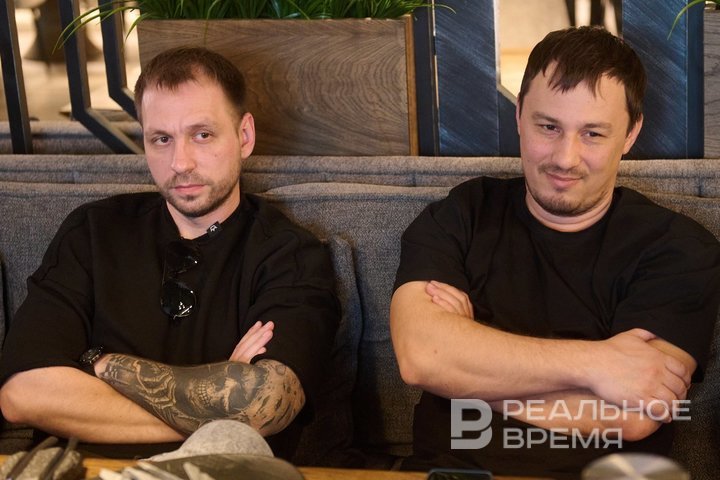
Sergey Nikiforov, the owner of the company Ecofood Premium (production of ripe dried pears for cheese plates, natural pastila and Tatar dessert tatly using an original technology), also complains about the difficulty of getting in touch with category managers of federal chains and subsequent work with them:
“We tried to enter federal chains, but then stopped all attempts, they are not interested in anything except potatoes and carrots. For everything else, there is local retail. And if you come from the street, no one will even listen to you. Only through personal channels did we manage to enter somewhere and establish distribution channels. We recently tried to get in touch with Zhiznmart, and the young boys and girls there who work as category managers noticed our Halal mark. They said: “We can’t work with this because it’s a special product for Muslims.” They don’t understand what halal is at all — they think it’s something like pilaf.
“The security guards kicked me out, but then they decided I was crazy and put me in touch with the category manager”
Dinar Shaikhutdinov, owner of Tatlavash, used to produce lavash, but has now moved into the field of meat production for HoReCa. Therefore, now the main distribution channel is a team of sales representatives who negotiate the supply of meat for shawarma, already prepared and even put on spools. So today there are no problems with distribution — only two companies in Kazan produce a product of this level of preparation for HoReCa.
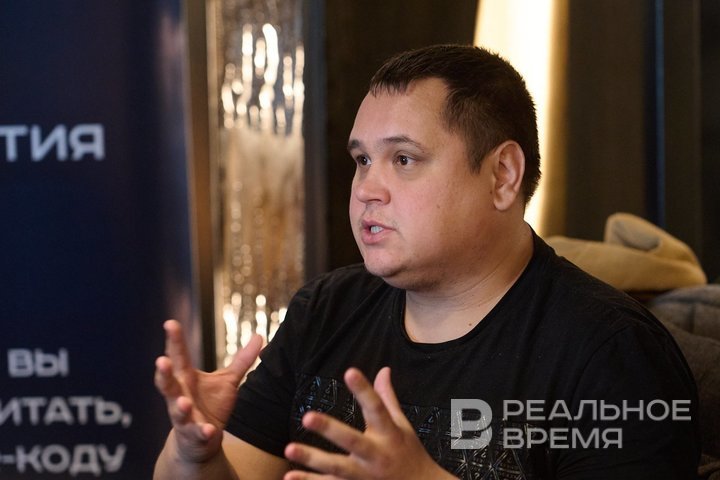
But, recalling his experience of entering federal chains with lavash several years ago, he confirms the words of his colleagues in the field and humorously tells how he stormed the office of one of the large chains:
“At first I wrote to them, no one answered me. Then we took all the samples of the product, and I went to their office. I went up to the floor and knocked on the door for two or three hours. The security guards kicked me out, but then they apparently decided that I was crazy and put me in touch with the category manager. Just to get me off my back. That's how we managed to enter this chain. But it didn't work out with another federal retailer, the security guard there turned out to be principled.”
By the way, Dinar Shaikhutdinov offers a life hack: when trying to enter chains with a mass product (like the same lavash), it's worth offering the chain's private label format. If you produce a product for federal retailers under their private label, the strength of your own brand will sag, but you'll be able to occupy the shelf you need (at eye level, the “sweetest”) and establish stable sales. By the way, this also works for premium products: Helix Group supplies semi-finished snail products and canned snail liver to Lavka 100 under its private label.
Hazard Analysis and Critical Control Points: a “universal excuse” for chains or an incentive to clean up your own production?
Honored economist of Russia and Tatarstan Sergey Nikiforov believes that local products are also prevented from reaching the shelves of federal supermarkets by passing through a sieve of production standards. In his opinion, the standards are too strict for “outsiders” but magically soften for “ours.”
“The feds have a universal excuse — Hazard Analysis and Critical Control Points. And they have different Hazard Analysis and Critical Control Points for everyone, so they can brush you off. Some strict standards only work for outsiders. In short, Hazard Analysis and Critical Control Points is a useful thing but “elastic.” Some are allowed in, others are not allowed,” he muses.

However, a number of other manufacturers, on the contrary, believe that passing a strict audit for federal chains is more good than evil. Thus, the commercial director of Helix Group Roman Matveyev describes the advantages of long-term cooperation with Yandex Lavka:
“We passed a strict audit with them, and all subsequent retailers who hear about it are no longer so biased towards us. Inspections are easier. But you still need to get to this stage, and first resolve the issue of reaching a category manager.”
Director of Krug Olesya Karaganova also talks about how useful it is to pass a strict audit with federal retailers (this family-owned enterprise with a 30-year history in Rybnaya Sloboda harvests and processes river fish).
“From experience, I can say that retail is a great experience for working out all your weak points in production, setting everything up according to standards. In the 2000s, we started working with Metro, and thanks to this, we managed to significantly improve the quality of our products. Now we work according to international Hazard Analysis and Critical Control Point standards, because I consider quality to be the main criterion of my work. In the future, we plan to enter the export market.”
Many manufacturers receive a halal certificate in order to increase sales to Kazan stores, restaurants or distribute products through their own channels. Here, much depends on the specifics of production. For example, head of Svetloye Ozero agricultural company Tatyana Kirova faced difficulties in obtaining a certificate, since she slaughters animals on her farm independently. Everything is done according to the canons of Islam, but obtaining a certificate was delayed, and in Tatarstan it means almost more than a Hazard Analysis and Critical Control Point certificate of conformity. Tatyana hopes that the issue will be resolved in the near future and then she will be able to continue supplying farm meat, guinea fowl, guinea fowl eggs and cheeses to several Kazan restaurants.
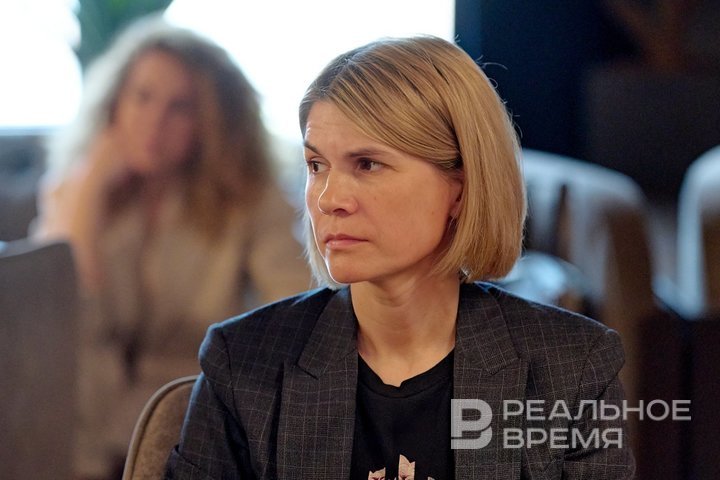
But Dinar Shaikhutdinov, who now sells semi-finished chicken products for the HoReCa sector (for example, for fast food restaurants), obtained the certificate quickly — he just doesn’t have a slaughterhouse, he takes chicken carcasses for cutting at two large Tatarstan poultry farms, which, in turn, already have documents about their “halal” status.
“Sales are active at fairs”
Owner of the Vorontsov Cheese brand Alexander Vorontsov also talks about the difficulties of working with chains. For example, it took him a year and a half to negotiate with Perekryostok (which opened farmer’s departments in Moscow), and only after that did he manage to get the product on the shelf. There is no talk of low-price chains:
“Our cheeses cost from 3,000 rubles per kilo. If you stand with them in Pyatyorochka, they simply won’t buy them without explaining the price. Auchan tried to force us to conduct tastings in Moscow stores every week — we didn’t do it, and they stopped working with us,” says Vorontsov. “In general, it’s not very profitable for us to work with chains: we need to lower the price for them, and we work without VAT, and all the chains are end-of-life and therefore require additional discounts.”
Providing expensive cheeses for tasting at Auchan every week would be like “shooting a cannon at sparrows” for Alexander Vorontsov — it’s too expensive and doesn’t guarantee an effectiveness, because this is an economy segment chain, where the buyer is not ready to spend almost as much on Russian cheese as on French cheese. But the cheese maker is sure that cheese tasting at professional fairs and exhibitions is a sure way to establish deliveries.
Incidentally, trips to other cities for fairs became the main impetus for development for him at one time — he finds wholesale buyers mainly there. Vorontsov Cheeses are regularly exhibited at the largest exhibitions in Russia: FoodExpo, Pir Expo, Cheese, Pir, Mir, which bring together 300 cheese makers from all over the country and everyone interested in deliveries.
“After each exhibition, we have wholesale buyers. These are mainly local chains, specialized cheese shops all over the country — from Kaliningrad to Kamchatka,” says Alexander Vorontsov. “Plus, we have active sales at fairs — we sell up to 15% of our products there. So, without federal advertising, from person to person, we continue to spread. And at every exhibition there is always someone who does not know about you yet.

Snail meat is also sold through tasting: Ramil Galimzyanov and Roman Matveyev have realized in three years of work that this is the only way to convince consumers to be interested in their complex, delicacy product.
“For example, everyone knows about fish. But very few people know about snails. Moreover, they know about grape snails, but not about ours. We have to convince them. And in three years we realized that this can only happen through tasting. In our region, our product is presented at the lowest price. Tatarstan and Kazan are not about making money for us. We earn money from deliveries to Moscow, Saint Petersburg, Nizhny Novgorod — we are represented there in high-end premium restaurants, including those with Michelin stars. About 30% of our deliveries go to restaurants, and we think that this share will grow over time. And here people can get acquainted with our product by coming to visit us. We are from here, we live here ourselves, we built production here, and for us this is a source of pride,” say the entrepreneurs.
Own stores and word of mouth: “Never go to Innopolis”
A number of the invited entrepreneurs have their own retail outlets to sell their products and distribute them through word of mouth. Thus, the cheese factory Cheeseria on Agrarnaya Street has chosen to sell through its own outlets. Its senior cheese maker Maxim Lavrentyev told about two farm shops at the restaurants Cheeseria on Agrarnaya Street and V Desyatku! However, the bulk of the cheeses from this cheese factory go, in fact, to the kitchens of these same restaurants:
“We do not make global wholesale sales, we work directly with our restaurants. The production workshop itself is located directly in the restaurant, we are physically unable to make large volumes. Our format differs from full-fledged industrial production with workshops, with chambers for ripening large volumes of cheese. We position ourselves more as producers of Italian stretched cheeses, which are stretched in hot water. Stracciatella, burrata, mozzarella, scamorza... Our restaurants take mozzarella and scamorza for pizza, we put such cheeses every day, and they all go away. We do not take large orders, because two people work in the workshop — a cheese maker and an assistant. You need to realistically assess your strengths.”
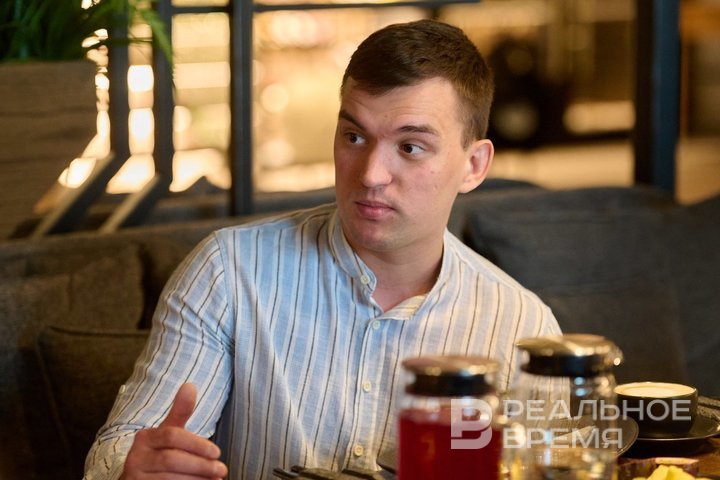
There is a retail store in Rybnaya Sloboda at Krug: Olesya Karaganova says that it has been operating for 25 years, the average turnover of fish sales there is about 10 tonnes a month (during the active fishing season). In Kazan, retail sales are provided mainly by presence at fairs: markets and fairs provide a steady influx of customers. Olesya Karaganova uses both state support and SME support programs provided by banks.
“In addition to state programmes, there are also programmes from banks. For example, we cooperate with one of them in terms of mini-fairs Tasty Friday. At such events, we manage to sell about 100 kg of our fish in two hours! And then these customers come back to us. We sell retail and through the website. Here, in Kazan, we consistently deliver at least 50 kilograms of fish per week to retail customers. In Kazan, processed products are in demand: steaks, fillets, minced meat, cutlets,” says the entrepreneur. “Now we are thinking about opening our own point of sale in the city, because we simply physically stop serving all our retail customers in the city through delivery.”
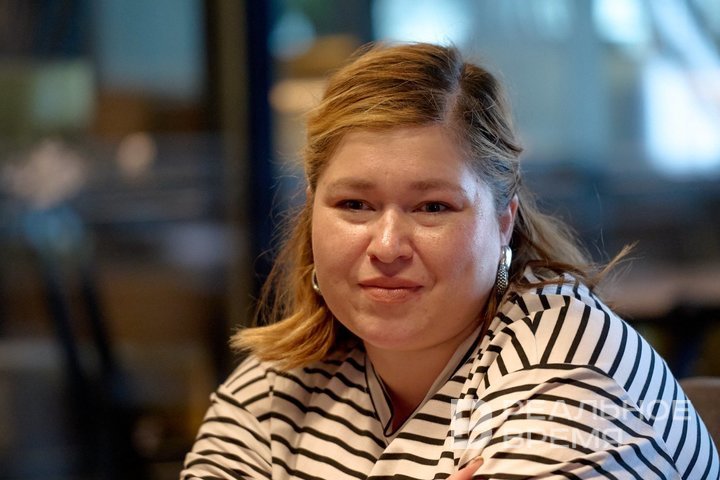
But Sergey Nikiforov did not manage to develop his own point of sale: it closed after 10 months of unsuccessful work.
“Here we were let down by official information that was not entirely true. My advice: never go to Innopolis. There are few buyers there, the solvent demand is low, and there are plenty of grocery stores. Everything that is said about the high salaries of IT specialists living in the city is wishful thinking. High salaries of workers at the Innopolis technopark are one thing. And it is not a fact that at least half of them live in the city itself. But the real incomes of Innopolis residents themselves, most of whom are unlikely to have the most direct relation to IT technologies, are somewhat different. If we exclude students, children and other residents with low incomes from the official number of city residents, it will be clear that there are problems with traffic there,” Nikiforov warns his colleagues.
Tatyana Kirova sells her farm produce and semi-finished products mainly through word of mouth. She has a difficult segment: the products are positioned as farm, environmentally friendly. The volumes are small. All this suggests that Tatyana simply won’t be able to compete with the low price tag in chain retail with her product. The price of her product is not small, but her buyer makes a choice and clearly understands what they are paying for.
“We distribute on our own. We cannot afford to enter retail and sell at the prices they offer. We work through our website, through word of mouth. We deliver to apartments in Kazan, and once a month a refrigerated truck leaves the farm for Moscow. We have started distributing with delivery in the villages around the farm. We have chicken, eggs, turkey, geese, ducks in cut-up and whole. We have our own pond, we sell grain-fed carp. We make long-aged cheeses. In short, we have our own problems in distribution, but we try,” explains Tatyana.
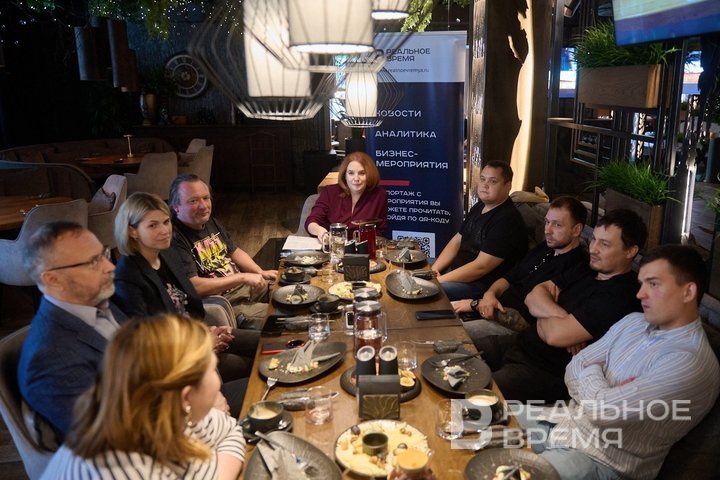
Souvenir shops, marketplaces and “peculiarities of national retail in Tatar style”
Alexander Vorontsov also has his own small points, and he also advises producers who make something special in Tatarstan to enter local chains of stores that work for tourists. For example, his cheeses sell well in Tatprodukt, and the best buyers of his products in Kazan are tourists. In addition, in his opinion, a “tourist paradise” will soon come to the updated Moscow market, he advises colleagues with a premium product to definitely go there:
“It's really cool there now. It will be the most touristy market in Kazan, people will be brought there by bus to buy delicacies as a souvenir, you'll see! The Moscow market will become a standard tourist route.”
Sergey Nikiforov says that his dried pears, pastila and tatly sell best... at the Kazan airport, despite the 100% markup of the store! Distribution is going well in the Tatspirtprom brand store on Pushkin, where, in addition to the plant's products, national specialties are widely represented. Tourists often go there and provide good sales.
Selling through local retail chains is convenient, but there are nuances here too. Sergey Nikiforov tells about a large Tatarstan chain, which, according to him, does not pay the manufacturer for the goods taken for sale:
“An acquaintance in Moscow told me that the term “business in Tatar style” has already appeared: the counterparty pays you an advance, and you can wait for years for the rest of the money. We have a small amount hanging over our heads at Bakhetl for a year and a half now. It is small, so there is no point in going to court. Everyone knows about them, but they don't care about word of mouth — this is how they live. And small local retail has its own specifics — their attitude to the product, they don’t like to work with it. The principle is this: salt, matches, kerosene, chak-chak — all mixed up. And it’s not clear what is where. And our product needs a certain layout so that there is information about the product!”
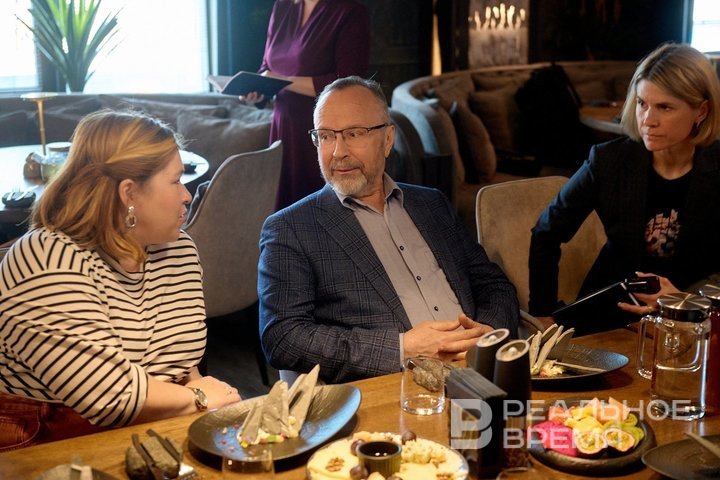
Online sales on marketplaces, according to the honoured economist of Russia and Tatarstan, are not suitable for those who position themselves as a manufacturer of natural products. Firstly, fresh products require refrigeration, and there are simply no refrigeration facilities in marketplace warehouses, and the delicate marshmallow dries out and spoils. Secondly, there is an inexpensive counterfeit for any natural product, Sergey Nikiforov claims that the marketplaces are overrun with cheap surrogates, for the sale of which and for deceiving consumers, no one is responsible.